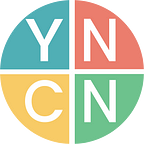What is PM?
Demystifying Product Management
Product management is an organizational function within a company dealing with new product development, business justification, planning, verification, forecasting, pricing, product launch, and marketing of a product or products at all stages of the product lifecycle. — Wikipedia
So, what do product managers actually do? And how did they get to where they are now?
This post summarizes key takeaways from current and previous product managers at Microsoft, Tesla, Roblox, Airbnb, Youtube, and Blackberry at YNCN’s Product Management Panel event held on October 28, 2020.
Why did you choose engineering?
Answers to this question ranged from ‘I grew up around computers’ to ‘I’m interested in both tech and business, but wanted to build up my technical foundations first.’
Common appeals of engineering were the aspects of real-world application, problem solving, and intersection of engineering technical designs with desirable business solutions.
Our panelists are University of Toronto alumni, and most graduated with a degree in either Industrial or Electrical/Computer Engineering as these disciplines offered courses that most aligned with their interests. However, this shouldn’t stop students from other disciplines from exploring the field!
Looking back to your time as a student or recent graduate, is there any advice you wish you had received?
Our panelists had many thoughts to share for this one. Here are a couple highlights:
“Tap into the UofT network — there are many talented, successful, and approachable individuals who would be happy to share their expertise.”
“Utilize student opportunities — summer internships, PEY, school clubs… try out different roles to figure out what you like, and what you’re good at.”
“Enjoy the university experience.”
“Your marks don’t really matter, especially after your first job!”
“Careers aren’t linear. Your next move doesn’t have to be the optimal one.”
Key takeaway: try to spend less time worrying about perfecting grades, and instead spend more time enjoying the learning process and taking advantage of opportunities to explore career pathways.
What does your day-to-day life look like in your current role?
Although our speakers agree that everyday is different, core aspects of a PM’s typical workday include market and user research, product specifications, and meetings (a lot of them).
Since product managers serve as the liaison between different stakeholders — engineers, designers, executives, legal, etc — they’re constantly solving ‘people problems.’ Oftentimes, this is done through team meetings or one-on-ones. Other times, they will run focus groups to determine what different stakeholder groups need.
Ultimately, a product manager is gathering, synthesizing, and summarizing information, routing up key insights to decision makers, or clarifying requirements amongst teams. Since PMs are constantly communicating with different folks of different interests, they’re always determining how to best deliver the right info to the right people.
What are the most essential skills to have as a PM?
One skill stood out, and seemed to receive the unanimous approval of all our panelists: communication.
At the end of the day, product managers are great communicators and excellent listeners. Their work on various multidisciplinary teams on different projects, and their role exists to create clarity in requirements, objectives, and value. With engineering teams, PMs help establish what is being built, and with executives, PMs convince them on why what’s being built is important.
Other key skills include:
- leadership
- organization
- self-regulation
- and the 4 pillars: product sense, analytical skills, technical skills, and communication skills
What is the most challenging aspect of being a PM?
Though, when it comes down to specific aspects of the role, building trust, handling ambiguity, and finessing the balance are some challenging features of product management, according to our speakers.
Building trust takes time, and it’s crucial a PM gains credibility with their team. Through user interviews, relevant data, and deeper research, a new product manager can demonstrate their organization and ability to make good decisions.
The real world doesn’t scope out objective, procedure, and timeline of a project the way a university assignment would. Instead, product managers need to determine key requirements, user needs, and a reasonable roadmap from a mass of ambiguity. Handling this uncertainty takes time getting used to, and this is when leadership and analytical skills can really develop.
Product managers have pretty packed schedules, so finding time throughout the day to complete small tasks and blocking out time to dive deeper into a larger projects can be difficult, but ultimately very rewarding. This skill itself, takes time to develop!
The job itself can be challenging, but balancing everything is part of the fun. Product management is a multi-faceted field, with roles in a wide range of industries. Hopefully this article provided some insight into what the role really entails, and for some, sparked an interest for a possible future career in PM!
We’d like to thank our panelists, Marissa Zhang, Victor Zhang, Sari Abukhadra, Wayne Lin, Gene Chan, and Calum Tsang for sharing their wisdom and expertise with us.
Resources
- https://apmlist.com
- https://apply.fyi
- https://levels.fyi/ (salary estimates)
- Cracking the PM Interview — Gayle Laakmann McDowell
- Decode and Conquer — Lewis C. Lin
- Swipe to Unlock — Parth Dethroja, Aditya Agashe, Neel Mehta
- Exponent Youtube Channel (mock interview videos)
- pmtechlessons.com (technical concepts explained in familiar terms)
